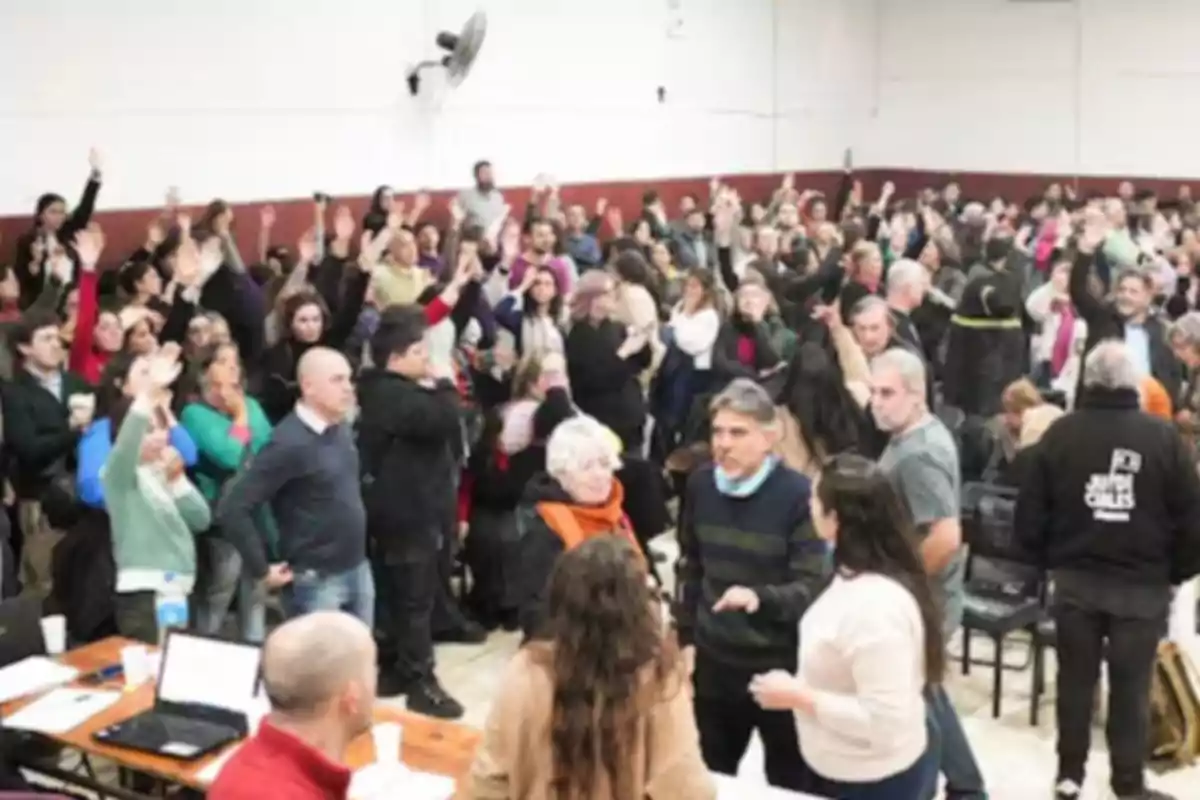
After a long conflict, Córdoba judicial workers accept salary equalization
The Trade Association of Judicial Branch Employees (Agepj) approved the proposal from the Superior Court of Justice (TSJ)
The Judicial Branch Employees' Union Association (Agepj) overwhelmingly approved the salary equalization proposal that the Superior Court of Justice (TSJ) had presented a few days ago, which stems from a long and intense conflict.
The crisis dates back to the beginning of the year, although the union emphasizes that it goes back to the last months of 2023.
The approval took place during an extraordinary assembly held this Thursday to evaluate the proposal presented by the TSJ on Tuesday.

"By an overwhelming majority of 567 votes, judicial affiliates approved the motion proposed by the leadership and the opposition in unity (Confluencia leadership group and Alternativa 16 N opposition group), which initiates the salary equalization of the Córdoba judicial branch staff with the salaries of their counterparts in Federal Justice," stated the Judicial Union, clarifying that the self-organized sector voted against the agreement.
The approved proposal includes all staff groupings: 29 (labor and maintenance), 28 (administrative/jurisdictional staff), and 27 (senior staff).
In fact, the agreement grants the following percentage increases by category: Auxiliaries 8.80%; Clerks 10%; Senior Clerk 13.50%; Officer 15%; Senior Officer 15%; Chief Senior Clerk 15.25%.
Official union statement on how it will be implemented
"These increases have an execution period of three years in four stages that would begin immediately. With the exception that for the initial category, there are two stages in one year. The first year, the increase is 4.16% calculated on the net take-home pay for all categories and groupings of the Judicial Branch staff. The percentages for each stage will be paid as non-remunerative for one year and then incorporated into the base salary in the 13th month. After that incorporation, the payment of the next tranche begins, also as non-remunerative for one year, and so on."
This way, they emphasize, at the end of the execution period, the aforementioned salary equalization of the provincial Justice would reach the following levels, compared to the same categories in Federal Justice (always using the example of grouping 28, which is identical to 29 and with slight differences from 27): Auxiliary 91.37%; Clerks 85.18%; Senior Clerk 82.01%; Officer 77.25%; Senior Officer 73.61%; Chief Senior Clerk 75.38%.
They finally highlighted that "the agreement also includes no deductions for the eleven strikes carried out."
Meanwhile, the union's deputy secretary, Agostina Noccioli, emphasized that "the equalization proposal we have reached is the result of the enormous and selfless struggle of all Córdoba judicial employees."
She added: "We have carried out major demonstrations, forceful strikes, and a very interesting experience of unity, thus overcoming barriers that seemed insurmountable at first."
More posts: